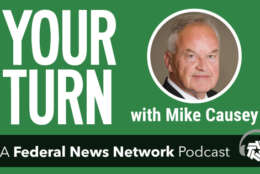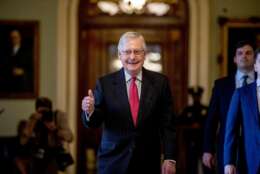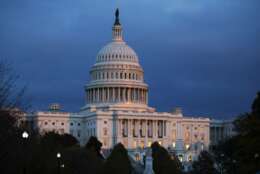National Active and Retired Federal Employees Association
-
Windfall Elimination Provision and Government Pension Offset cost millions of federal and public employees even more millions in dollars of benefits.
May 13, 2020 -
During Public Service Recognition Week (PSRW), let’s take a moment to thank civil servants and recognize the contributions they make to our way of life, every day — pandemic or not.
May 07, 2020 -
Although it's too early speculate about numbers, some experts in health insurance have projected that premiums overall for all Americans could rise by 40% percent if not more.
April 14, 2020 -
Agencies such as the Department of Veterans Affairs are calling on federal retirees to return to government and help with their coronavirus responses as reemployed annuitants. Thinking of joining them? Here's what you need to know.
April 08, 2020 -
The Office of Personnel Management has given the Department of Veterans Affairs authority to rehire retired federal medical professionals.
April 08, 2020 -
NARFE's James Marshall and Jessica Klement join Your Turn with Mike Causey Wednesday, April 8 at 10 a.m. on to answer your questions.
April 07, 2020 -
The president has signed the $2 trillion stimulus and emergency supplemental appropriations package into law. It will have implications for federal employees and their agencies, retirees and contractors.
March 26, 2020 -
Experts from the National Active and Retired Federal Employees Association said the election season will overshadow much of what should happen on Capitol Hill.
March 04, 2020 -
The Democratic presidential primaries are great drama this year and the coronavirus scare is super important. That said, until a lot more is known, life goes on.
March 04, 2020 -
The two decades-old laws impact, as in reduce or almost eliminate, the Social Security benefits of 1.8 million public servants.
February 18, 2020 -
In what’s become the administration’s evergreen budget plan, the White House has again proposed that federal workers kick in more of their salary toward their retirement plan in return for smaller lifetime annuities that are frozen when they retire.
February 12, 2020 -
NARFE president Ken Thomas says last year's White House budget proposal “breaks promises to both current and future retirees."
February 04, 2020 -
Lots of people who live in high tax states relocate for retirement.
December 27, 2019 -
A 3.1% federal pay raise is a key feature of one of two "minibus" spending bills, which congressional appropriators unveiled Monday evening. Both the House and Senate are expected to quickly vote on both this week before Friday's funding deadline.
December 16, 2019 -
Twelve weeks of paid parental leave is the main attraction in the House-passed defense authorization bill, but it has a lot more for civilian federal employees.
December 11, 2019















